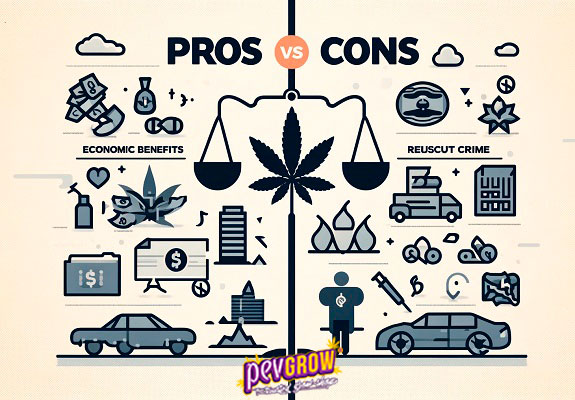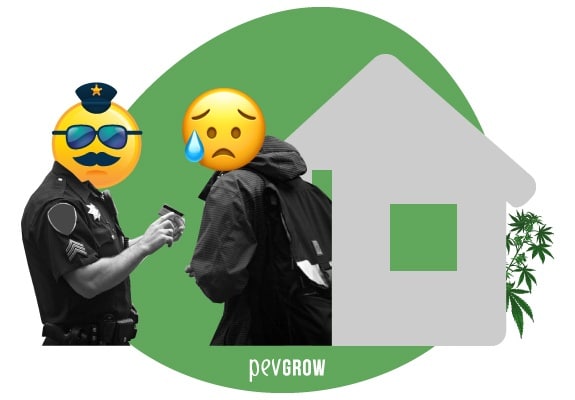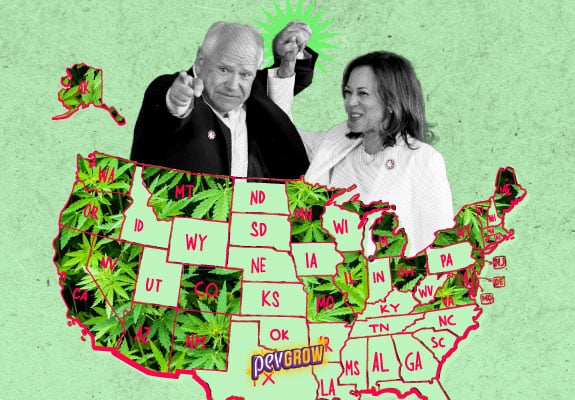- Explore the benefits and challenges of cannabis legalization in this comprehensive guide. Discover how it impacts the economy, public health, social justice, and the environment.
- Legalization of Cannabis in Germany
- WHO Supports the Legalization of Cannabis


In constant struggle for the regulation of cannabis, mainly in the medicinal field.
04-06-2024 07:35:51 - Updated: 4 June, 2024
Cannabis legalization is a topic that has sparked intense debate in numerous countries in recent years. In this guide, we will explore in detail the pros and cons of this measure across key aspects, from its economic impact to its implications on public health, crime, and social justice. By better understanding the various aspects associated with cannabis legalization, we can more informedly analyze the policies and regulations surrounding this controversial plant. You will now see the pros and cons of cannabis legalization in a table and subsequently in an extended manner to make it much clearer to you.
🚀 Table of Pros and Cons of Cannabis Legalization
| Aspect | Pros | Cons |
|---|---|---|
| Economic |
|
|
| Public Health |
|
|
| Crime |
|
|
| Social Justice |
|
|
| Environment |
|
|
🔥 Pros and Cons of Cannabis Legalization in General
Economic
Pros
- Generation of tax revenues: The legalization of cannabis can be a significant source of revenue for the government through taxes on the sale and production of the plant, as well as through licenses for businesses operating in the cannabis industry. These revenues can be allocated to health programs, education, infrastructure, and other public services.
- Job creation: The cannabis industry, from cultivation to retail, can create a large number of jobs in various sectors, including agriculture, manufacturing, technology, marketing, and customer service. This can have a positive impact on the local and national economy by reducing unemployment rates and increasing the purchasing power of the population. If you want to see some examples, here is an article where we talk about the jobs generated by the cannabis industry.
Cons
- Possible increase in healthcare costs: Although the legalization of cannabis can have economic benefits, it may also lead to an increase in consumption, which in turn could result in an increase in costs associated with healthcare, especially in terms of treatments for disorders related to cannabis use or accidents associated with its use.
- Costs associated with regulation and law enforcement: Implementing and regulating a legal cannabis market involves significant costs for the government in terms of law enforcement, quality control, public education, and prevention and treatment programs. These costs can be considerably high and require substantial investment of financial and human resources.
Public Health
Pros
- Access to quality-controlled cannabis: The legalization of cannabis can ensure that consumers have access to quality and purity guaranteed products, which can reduce the risks associated with the consumption of contaminated or adulterated cannabis in the black market.
- Reduction of the black market and associated crime: By legalizing cannabis, the incentive for illegal trade is removed, which can reduce involvement in criminal activities associated with the production, distribution, and sale of cannabis in the black market.
Cons
- Possible increase in consumption: Some critics of cannabis legalization argue that it could lead to an increase in consumption, especially among the youth, which in turn could increase health risks associated with cannabis use, such as addiction, mental disorders, and cognitive impairment.
- Possible increase in traffic-related accidents: Cannabis use can impair a person’s ability to drive safely, which could lead to an increase in traffic-related accidents involving cannabis. This raises significant concerns in terms of road safety and public health.
Crime
Pros
- Reduction of cannabis-related crime: The legalization of cannabis can reduce crime related to its production, distribution, and sale, as it eliminates the need to engage in illegal activities to access the substance.
- Freeing up of police and judicial resources: By reducing the workload associated with enforcing laws against cannabis, legalization can allow law enforcement and the judicial system to focus their resources on preventing and resolving more serious crimes.
Cons
- Possible increase in organized crime in other sectors: By legalizing cannabis, organized crime may shift towards other illegal sectors, such as trafficking in more dangerous drugs or human trafficking, which could counteract the benefits of reducing crime related to cannabis.
- Possible increase in availability to minors: Although cannabis legalization is usually accompanied by regulations to restrict access to minors, there is a risk that the availability of legalized cannabis may facilitate access for young people to the substance, raising concerns about early age consumption and its potential effects on development.
Social Justice
Pros
- Reduction in incarceration for cannabis offenses: The legalization of cannabis can help reduce the number of people incarcerated for offenses related to its possession, distribution, or sale, which can contribute to alleviating prison overcrowding and reducing racial disparities in the criminal justice system.
- Repair of historical injustices in communities: For decades, cannabis prohibition policies have disproportionately impacted minority communities, contributing to the stigmatization and criminalization of these populations. The legalization of cannabis can be a step towards repairing these injustices and promoting racial and social equity.
Cons
- Possible increase in disparities in law enforcement: Although cannabis legalization can help reduce racial disparities in the enforcement of cannabis-related laws, there is a risk that disparities may persist in terms of access to the legal cannabis industry and the enforcement of regulations, which could perpetuate social and economic inequalities.
- Possible continued stigmatization of users: Despite advances towards the acceptance and normalization of cannabis use, some people and communities still face stigmatization and discrimination due to their use of the substance. Legalization can help reduce this stigmatization, but challenges remain in terms of public education and changing perceptions.
Environment
Pros
- Environmental regulation in cultivation and production: The legalization of cannabis can allow for the implementation of stricter environmental regulations in terms of cultivation, production, and processing of the plant, which can help reduce the negative impact on natural resources and the environment in general.
- Potential for sustainable agricultural practices: By legalizing cannabis, more environmentally friendly and sustainable agricultural practices, such as organic farming, the use of renewable energy, and water conservation, can be promoted, which can contribute to the protection of local ecosystems and biodiversity.
Cons
- Possible negative impacts on water resources and soils: Intensive cannabis cultivation can have negative impacts on water resources and soils, especially if adequate measures for water management, soil erosion prevention, and pollution control are not implemented.
- Risk of deforestation and loss of biodiversity: The expansion of the cannabis industry may lead to the conversion of forest lands and natural ecosystems for agricultural use, which could cause deforestation, loss of natural habitats, and a decrease in biodiversity in the affected regions.
🎯 Conclusions
The legalization of cannabis is a complex issue that involves a wide range of considerations, from economic aspects to public health and social justice concerns. While there are potential benefits, there are also significant challenges that must be addressed carefully and balanced. When making decisions about cannabis legalization, it is crucial to consider all aspects involved and work towards policies that maximize benefits and minimize risks for society as a whole. In this article, we have reviewed the pros and cons of cannabis legalization, but you should be aware that cannabis has always been legal, as it is a natural plant, and if you want to see the reasons for its prohibition to see how unfair it is, I recommend reading this other article that talks about the prohibition of cannabis.
👾 FAQs and Answers
- What are the main economic benefits of cannabis legalization? Cannabis legalization can generate significant tax revenues for the government through taxes and licenses. Additionally, it creates employment in the cannabis industry, from cultivation to retail.
- What impact does cannabis legalization have on public health? Legalization can ensure safer access to quality-controlled cannabis, thereby reducing the risks associated with the consumption of contaminated or adulterated substances. However, it also raises concerns about a potential increase in consumption, especially among the youth.
- How does cannabis legalization affect crime? Legalization can reduce crime related to cannabis and free up police and judicial resources. However, there is a risk of an increase in organized crime in other sectors and greater availability to minors.
- What implications does cannabis legalization have for social justice? Legalization can reduce incarceration for cannabis offenses and repair historical injustices in minority communities. However, it may also lead to disparities in law enforcement and continued stigmatization of users.
- How does cannabis legalization affect the environment? Legalization can allow for the implementation of stricter environmental regulations and promote sustainable agricultural practices. However, there is a risk of negative impacts on water resources, soils, and biodiversity due to intensive cultivation and land conversion.






Hey, after reading the article, it became clear to me how the legalization of cannabis can bring economic and health benefits, it’s awesome how they explained it!